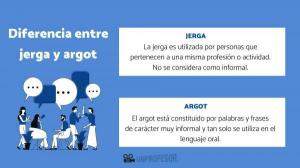Differences between oral and written language

One of the main characteristics that differentiate humans from other animals is, without a doubt, the use of language as a vehicle of communication and interaction. The language allows people to communicate through two variants that are configured according to the medium used to establish communication; that is, we can distinguish between oral use of language and written language. In this lesson from a TEACHER we explain what the differences between oral and written language.
When we go to a store to buy a gift, we call a friend or greet a neighbor on the street, we are using the oral variant of the language. Oral language is characterized, fundamentally, by being spontaneous, dynamic and interactive; that is to say, the communicative act that takes place has not been thought before and is developing at that precise moment.
Another defining element of oral language is the predominance of a basic vocabulary and, on many occasions, colloquial. When we speak, we use an informal and repetitive vocabulary (fillers and set phrases are very frequent), easy for our interlocutor to understand.
Along the same lines as vocabulary, the most frequent grammar in the oral language is non-standard. Thus, it is more likely to make concordance errors or leave sentences half-way, since it is a spontaneous dialogue, which is being built at the very moment of the interaction. The use of simple sentences from the syntactic point of view to the detriment of more complex grammatical constructions with long sentences.
Instead, when we write a letter to the newspaper, write an academic paper or send an email, we are using the written variant of the language. Written language is characterized by requires prior planning; In other words, we first think and decide about what we are going to write and to whom and, from there, we resort to a specific language. For this reason, the written language is neat, formal, and generally more neutral.
The recurring lexicon in the written language is a specialized vocabulary, since more technical and appropriate words are used to the subject on which it is writing. Likewise, more synonyms appear in order to prevent the reading of the text from being boring and repetitive and also adjectives abound, which are responsible for describing and detailing as exactly as possible what you want to transmit.
It is important to bear in mind that the receiver only has the written text to understand the message and, therefore, it must be written in a clear, orderly and adequate way. Thus, the grammar is usually more elaborate, with longer and more specific sentences on the subject to be discussed, since it has previously been raised.

Once we have seen the specific elements of both oral and written language, we are now going to focus on the differences between oral language and written language:
- First, the transmission medium varies, since the oral variant uses the auditory canal while the written variant does so through a visual channel. Similarly, the first uses phonetically articulated sounds and the second communicates the message through letters.
- On the other hand, the spontaneity of the spoken language allows interruptions, reformulations and immediate clarifications whereas the written language does not admit any change once the text has been written and has reached its addressee.
- In relation to the above, oral language is accompanied by gestures (nonverbal language) and changes in intonation that are not present in the written language, whose only means of transmission is the graphic sign. For this reason, the written language is more neat, organized and careful.



